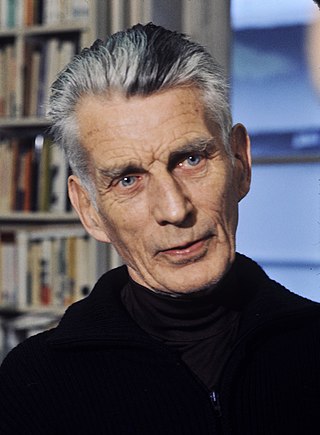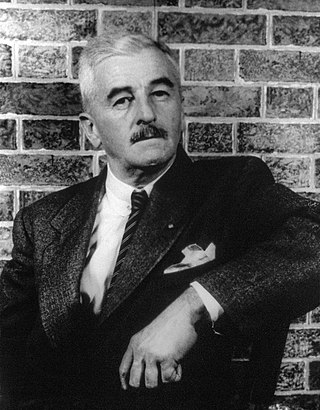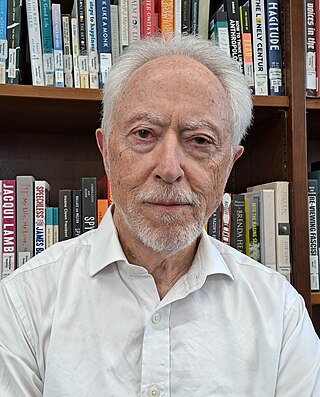Related Research Articles

Sir Derek Alton Walcott OM was a Saint Lucian poet and playwright.

Elias Canetti was a German-language writer, born in Ruse, Bulgaria to a Sephardic Jewish family. They moved to Manchester, England, but his father died in 1912, and his mother took her three sons back to continental Europe. They settled in Vienna.

Samuel Barclay Beckett was an Irish-born Nobel Prize winning, existentialist novelist, dramatist, short story writer, theatre director, poet, and literary translator. His literary and theatrical work features bleak, impersonal, and tragicomic experiences of life, often coupled with black comedy and nonsense. His work became increasingly minimalist as his career progressed, involving more aesthetic and linguistic experimentation, with techniques of stream of consciousness repetition and self-reference. He is considered one of the last modernist writers, and one of the key figures in what Martin Esslin called the Theatre of the Absurd.

William Cuthbert Faulkner was an American writer. He is best known for his novels and short stories set in the fictional Yoknapatawpha County, Mississippi, a stand-in for Lafayette County where he spent most of his life. A Nobel laureate, Faulkner is one of the most celebrated writers of American literature and often is considered the greatest writer of Southern literature.

Akinwande Oluwole Babatunde "Wole" Soyinka is a Nigerian playwright, novelist, poet, and essayist in the English language. He was awarded the 1986 Nobel Prize in Literature for his "wide cultural perspective and... poetic overtones fashioning the drama of existence", the first sub-Saharan African to win the Prize in literature.

Heinrich Theodor Böll was a German writer. Considered one of Germany's foremost post-World War II writers, Böll received the Georg Büchner Prize (1967) and the Nobel Prize for Literature (1972).

Doris May Lessing was a British novelist. She was born to British parents in Iran, where she lived until 1925. Her family then moved to Southern Rhodesia, where she remained until moving in 1949 to London, England. Her novels include The Grass Is Singing (1950), the sequence of five novels collectively called Children of Violence (1952–1969), The Golden Notebook (1962), The Good Terrorist (1985), and five novels collectively known as Canopus in Argos: Archives (1979–1983).
This article contains information about the literary events and publications of 1891.

Iosif Aleksandrovich Brodsky was a Russian and American poet and essayist. Born in Leningrad in the Soviet Union, Brodsky ran afoul of Soviet authorities and was expelled from the Soviet Union in 1972, settling in the United States with the help of W. H. Auden and other supporters. He taught thereafter at Mount Holyoke College, and at universities including Yale, Columbia, Cambridge, and Michigan. Brodsky was awarded the 1987 Nobel Prize in Literature "for an all-embracing authorship, imbued with clarity of thought and poetic intensity". He was appointed United States Poet Laureate in 1991.

John Maxwell Coetzee FRSL OMG is a South African and Australian novelist, essayist, linguist, translator and recipient of the 2003 Nobel Prize in Literature. He is one of the most critically acclaimed and decorated authors in the English language. He has won the Booker Prize (twice), the CNA Literary Award (thrice), the Jerusalem Prize, the Prix Femina étranger, and The Irish Times International Fiction Prize, and holds a number of other awards and honorary doctorates.

Colm Tóibín is an Irish novelist, short story writer, essayist, journalist, critic, playwright and poet.

Nicolaas (Cola) Debrot was a writer, lawyer, medical doctor and politician.
Caribbean literature is the literature of the various territories of the Caribbean region. Literature in English from the former British West Indies may be referred to as Anglo-Caribbean or, in historical contexts, as West Indian literature. Most of these territories have become independent nations since the 1960s, though some retain colonial ties to the United Kingdom. They share, apart from the English language, a number of political, cultural, and social ties which make it useful to consider their literary output in a single category. Note that other non-independent islands may include the Caribbean unincorporated territories of the United States, however literature from this region has not yet been studied as a separate category and is independent from West Indian literature. The more wide-ranging term "Caribbean literature" generally refers to the literature of all Caribbean territories regardless of language—whether written in English, Spanish, French, Hindustani, or Dutch, or one of numerous creoles.

Literature is any collection of written work, but it is also used more narrowly for writings specifically considered to be an art form, especially novels, plays, and poems. It includes both print and digital writing. In recent centuries, the definition has expanded to include oral literature, much of which has been transcribed. Literature is a method of recording, preserving, and transmitting knowledge and entertainment. It can also have a social, psychological, spiritual, or political role.

Caribbean poetry is vast and rapidly evolving field of poetry written by people from the Caribbean region and the diaspora.

The Nobel Prize in Literature, here meaning for Literature, is a Swedish literature prize that is awarded annually, since 1901, to an author from any country who has, in the words of the will of Swedish industrialist Alfred Nobel, "in the field of literature, produced the most outstanding work in an idealistic direction". Though individual works are sometimes cited as being particularly noteworthy, the award is based on an author's body of work as a whole. The Swedish Academy decides who, if anyone, will receive the prize.
This article is focused on English-language literature rather than the literature of England, so that it includes writers from Scotland, Wales, and the whole of Ireland, as well as literature in English from former British colonies. It also includes, to some extent, the United States, though the main article for that is American literature.

The 1992 Nobel Prize in Literature was awarded to the Saint Lucian poet Derek Walcott (1930–2017) "for a poetic oeuvre of great luminosity, sustained by a historical vision, the outcome of a multicultural commitment." He became the first and only Caribbean writer to be awarded with the prize.
Clara Rosa De Lima is a Trinidadian novelist, poet, journalist, and art dealer.
References
- ↑ Parini, Jay (2004). The Oxford Encyclopedia of American Literature. Oxford University Press. p. 277. ISBN 978-0-19-515653-9.
- ↑ "Derek Walcott - Bibliography". NobelPrize.org. Retrieved 22 July 2018.
- ↑ Hamner, Robert D. (1977). "Mythological Aspects of Derek Walcott's Drama". Ariel. 8 (3): 41–43. Retrieved 22 July 2018.
- ↑ Thieme, John (2 July 1999). "Founding a West Indian theatre". Derek Walcott. Manchester University Press. pp. 42–44. ISBN 978-0-7190-4206-5.